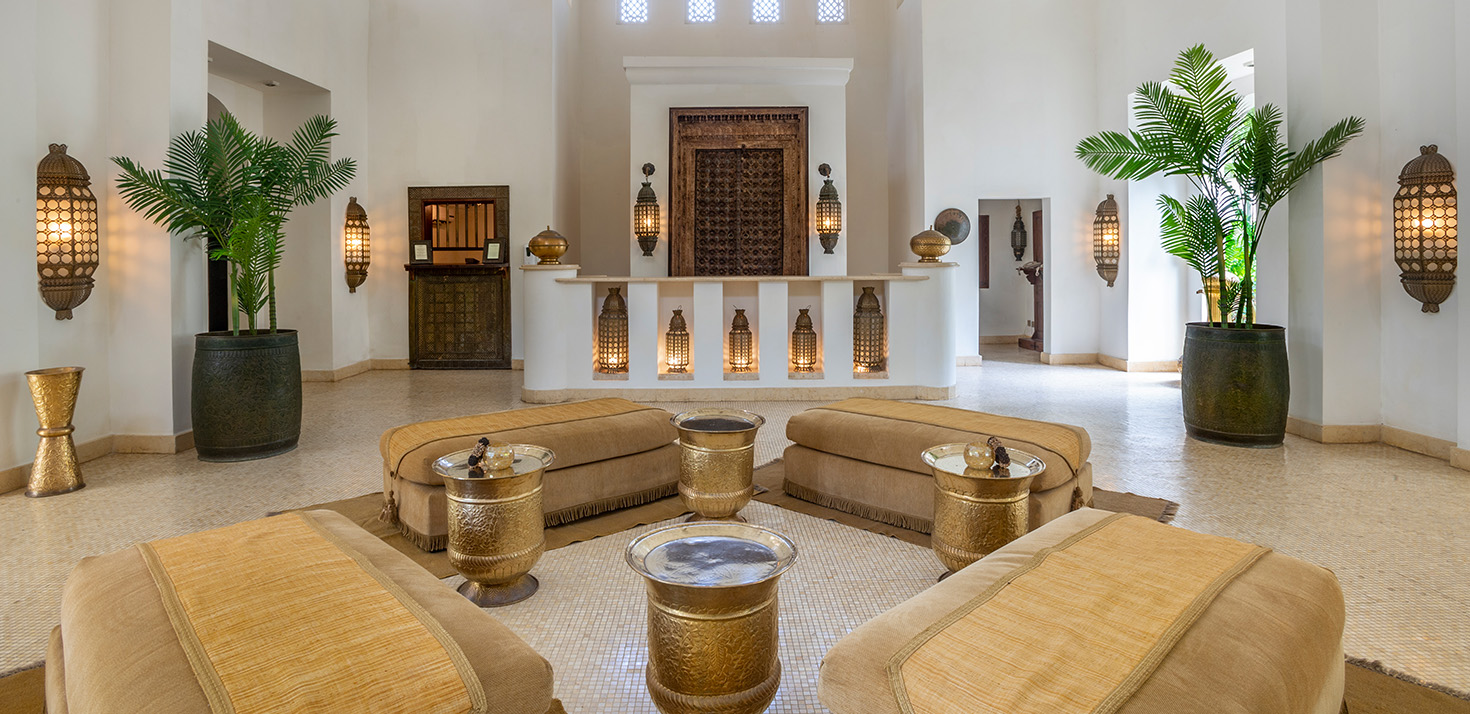
Swahili Culture at the Zanzibar Collection
15th May 2023
Swahili Culture at the Zanzibar Collection
One cannot know the true essence of Zanzibar without experiencing its Swahili culture. Zanzibar’s unique culture is a blend of African, Asian, Middle-Eastern and European influences over many centuries because the island was historically a significant centre for the Indian Ocean maritime trade.
At all four hotels (Breezes Beach Beach Club & Spa, Baraza Hotel, The Palms and Zawadi Hotel) the Swahili culture is expressed in authentic and engaging ways.
Zanzibar is famous for its carved wood furniture, a tradition with origins in India and the Persian Gulf countries. Striking, intricately carved doors and door frames, sometimes embedded with brass studs, replicate ancient doors found on buildings in the old Stone Town district of Zanzibar.  Many of the wooden furnishings in the restaurants, public areas and guestrooms are handmade by local furnituremakers based at Zanzibar Collection’s in-house workshop. The pieces are not only beautiful and functional, but they keep alive a tradition going back hundreds of years while supporting the local artisan industry. Carved sofas, daybeds, coffee tables, mirror frames, travel chests, brass coffee kettles - everywhere you turn you will see typical Swahili-style accessories.
Many of the wooden furnishings in the restaurants, public areas and guestrooms are handmade by local furnituremakers based at Zanzibar Collection’s in-house workshop. The pieces are not only beautiful and functional, but they keep alive a tradition going back hundreds of years while supporting the local artisan industry. Carved sofas, daybeds, coffee tables, mirror frames, travel chests, brass coffee kettles - everywhere you turn you will see typical Swahili-style accessories.
Wall niches with decorative pieces and arched walls are a common aspect of traditional Swahili houses. The rooftop lounge at Baraza (meaning gathering place in Kiswahili) imitates the terraces of historic upper-class homes, a place to gather, relax and enjoy the cooling sea breezes.  Swahili food is some of the most flavourful in the world and the meals at Zanzibar Collection embody this tradition by offering a taste of the rich cuisine. Zanzibar is renowned for its homegrown spices, especially cloves, cinnamon, cardamom, nutmeg and black pepper.
Swahili food is some of the most flavourful in the world and the meals at Zanzibar Collection embody this tradition by offering a taste of the rich cuisine. Zanzibar is renowned for its homegrown spices, especially cloves, cinnamon, cardamom, nutmeg and black pepper.
Swahili food is some of the most flavourful in the world and the meals at Zanzibar Collection embody this tradition by offering a taste of the rich cuisine. Zanzibar is renowned for its homegrown spices, especially cloves, cinnamon, cardamom, nutmeg and black pepper.
At dinner time, the entertainment program at Breezes Beach Club and Baraza Hotel often has a Swahili bent. A Taraab musical trio presents a genre of Swahili music (taraab) that has roots in Middle-Eastern and Indian melodies. Playing the violin, hand drums and accordion, the taraab singers will stir your soul on a balmy night.
On another evening a traditional storyteller will recount the fascinating history of the island. On other days, a troop of traditional dancers showcases the vibrant cultural dances of Zanzibar as you enjoy the flavoursome cuisine.  Kiswahili is the national language of Zanzibar. It is a mix of coastal Bantu languages and Arabic, and has many Indian and Portuguese words as well. A weekly Kiswahili class at the Zanzibar Collection will familiarise you with common terms of this lyrical language.
Kiswahili is the national language of Zanzibar. It is a mix of coastal Bantu languages and Arabic, and has many Indian and Portuguese words as well. A weekly Kiswahili class at the Zanzibar Collection will familiarise you with common terms of this lyrical language.
The long white uniform robes of some staff draw directly from the kanzu tunics of Muslim men in Zanzibar and the greater East Africa region. Colourful kitenge print shirts worn by other staff attest to the Far Eastern and Dutch influences on the East African coast in the 1800s.
Coconut palm trees are a quintessential aspect of Zanzibar’s landscape and are culturally important in many ways. The makuti (palm leaves) thatching seen at the Zanzibar Collection is a typical style of house roofing, woven and laid by skilled local roofers. Makuti brings a traditional element to the luxurious properties whilst creating a naturally cool and shaded atmosphere.
In Swahili culture, palm leaves are woven into mats, baskets, fences and other objects. On Wednesdays, guests can sit under the shade of the coconut trees with Juma, a skilled local palm weaver, and learn how to weave hats and baskets from fresh palm leaves. 
 +254 733 777 172
+254 733 777 172





 Book Now
Book Now